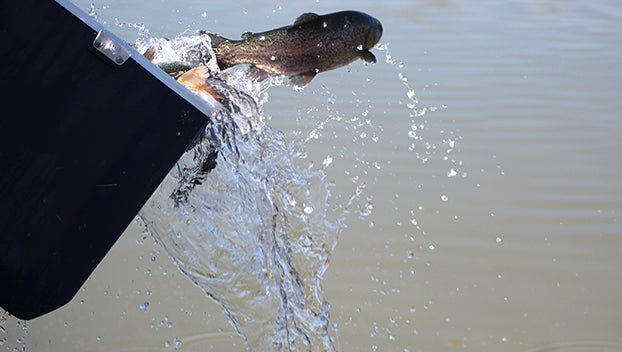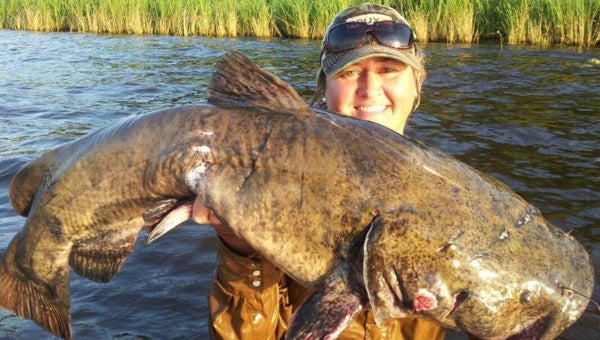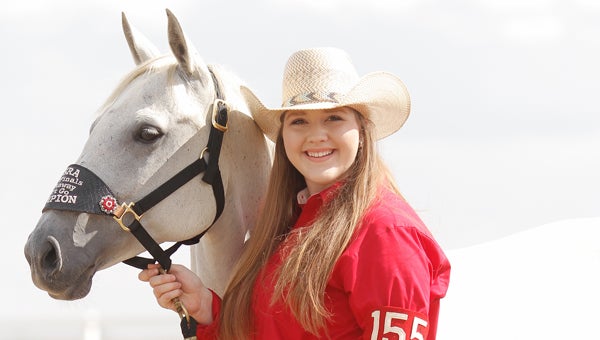Where did all the moss go in the Miss-Lou lakes?
Published 12:01 am Sunday, August 5, 2012
If I had to choose one month out of the year to take a break from bass fishing, August would be that month.
Our local lakes and rivers are standing at near-record-low water levels. Surface water temperatures top out in the upper 80s and lower 90s.
If we still had the moss beds of yesteryear in our lakes, we could catch a lot of bass in August.
The coontail and hydrilla moss have completely disappeared from some lakes and there is very little moss in other local lakes. I don’t know why the moss is gone, but it’s gone. It began to disappear in the year 2000.
Prior to that year, lakes like Concordia and St. John as well as Lake Bruin, were loaded with crisp, clean and green coontail moss beds.
Moss filters water. Moss gives small fish a place to hide from predator fish. Moss offers shade from the heat.
If you read fishing reports from across the south, the people are catching bass and lots of them, but the successful pattern involves targeting moss beds.
When the moss went away our water quality fell off. That’s not good for the people that swim in the lakes and the people that fish our lakes.
The clarity of the lakes this month looks like English peas — a weird shade of green. We no longer see the summertime schools of shad flipping on the lake’s surface and the bass blowing up on the shad.
Hopefully the disappearance of the moss is just a phase these lakes are going through, and we will see the moss come back.
A few lakefront property owners that are clueless as to what moss does for our lakes don’t want moss in the lakes. If you like good, clean water to fish, swim and play in you should be wondering why the moss is gone and how we can get it back.
I thought it would be illegal to transport and try to grow coontail moss in a public lake. I spoke with Louisiana Department of Wildlife and Fisheries officials, and they said it is not illegal, and we could do such.
It’s very simple to plant, but it would be hard to transport coontail from wherever you find it to our lakes.
I saw lake committees in other parishes and other states trying to grow moss to improve the fishing and water quality. They would use chicken wire, form huge circles and stake the wire form down with 2-by-4s. You then throw in the coontail moss and take a board and push it down to the bottom.
The wire forms will keep grass carp and other vegetation eating, non-native and unwanted species of fish away from the plots.
The absolute downfall of many past productive lakes was the introduction of grass carp into the water. These non-native fish will eat everything green in the water. It only takes a few months for the grass carp to destroy a lake.
There are some prime examples of the damage grass carp can do in many Louisiana and Mississippi lakes.
Caney Lake, in north central Louisiana, was growing some huge trophy bass. The lake was loaded with moss. People were coming from all over the South to fish for Caney’s trophy bass. Lake committee members, many who do not fish, and property owners complained and grass carp were introduced.
Not many fishermen go there anymore, and it’s rare to hear of the 10-pound bass that used to come from this lake.
The same thing happened to the small, 250-acre lake at the Natchez State Park. In the 1990s, this little lake produced dozens of bass over 10 pounds. It also produced the still-standing Mississippi State largemouth bass record (18.05 pounds). That fish is larger than the Texas state record bass.
Nothing has even come close to beating that record bass in the past 18 years. Grass carp were released in the state park lake. The bass fishing declined extremely fast.
I just don’t understand when the Mississippi Department of Wildlife, Fisheries and Parks and LDWF can’t step in and help us get moss back in the lakes.
If they would, the good fishing would return. The visitors would come back to our area and spend their money locally in motels and restaurants, not to mention all the gas and other items that would be sold.
You would think this is something everyone would want. We shall see.
I will look into this some more and see if something can be done to clean our waters up and get the moss back in the lakes.





